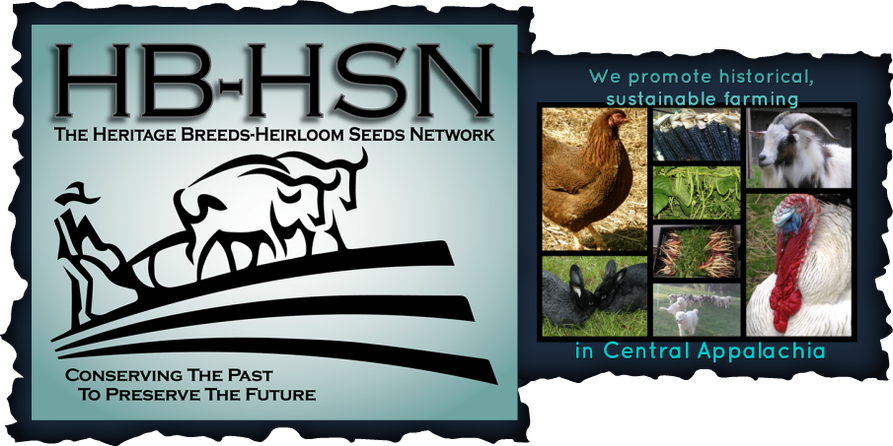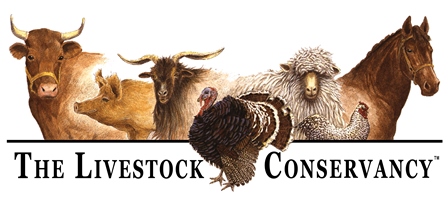Why Should We Worry About the Conservation Of Crops and Animals?
Agricultural biodiversity is two-fold; it is the wide availability of a variant genetic base to ensure the gene pool remains viable and strong, and the insurance that one specific breed is not overrepresented in our food supply. Why is it important? Consider the Irish Potato Famine of 1846, which was a major factor in the deaths of one million people and the emigration of about two million. It was basically caused by planting only two potato varieties which were both vulnerable to the 1845 blight. Had the Irish farmers planted several other disease resistant varieties, perhaps the Famine could have been avoided or at least its effect might have had far less impact. Most of our heritage breeds and heirloom seeds are hardy and disease resistant. Most of what is considered commercialized livestock and seed today has been heavily modified and/or given a large amount of chemicals or medications to make them more disease and pest tolerant because these qualities have essentially been 'bred' out of the food supply due to poor management---often the result of greed in our opinion; the desire to produce more, and produce it faster, has led to the demise of health and quality in our animals and crops. Even the taste has suffered. And many people maintain the commercial food supply is no longer safe, as it has been modified and medicated to the point of transferring those foreign influences to the consumer.
The Heritage Breeds-Heirloom Seeds Network strongly believes we must protect our traditional livestock and crops to guard against another crop failure and potential loss of important genetic resources due to extinction. We also feel the historical breeds and seeds are superior in taste, quality and meat-to-bone ratio, meaning the heritage farmer can produce a superior product with less intervention in terms of grain, medicines/chemicals/pesticides, and intensive labor. Most heritage breeds lend themselves well to grass-fed and free-range production, both of which result in healthier meat, dairy and eggs which are higher in Omega-3s and other essential nutrients. Most heritage breeds are also dual and even triple purpose animals, meaning they are perfect for the homesteader who might have limited space; the same animal could supply two or three of the farmer's needs as opposed to having to house and care for several separate breeds to accomplish the same purposes. Heirloom seeds lend themselves well to organic gardening practices and are often more flavorful. As mentioned above, historical livestock and crops have good parasite and disease resistance, and the livestock require less grain to thrive, which translates to less impact on the environment to sustain them. In contrast, commercialized breeds and crops require intensive labor, vast amounts of grain, and large amounts of antibiotics or pesticides/chemicals to make them productive to the farmer. Commercial livestock and crops often outproduce historical livestock and crops in quantity, but pale in comparison to quality of meat-to-bone ratio and taste.There is a lower incidence of free-range and grass-fed practices because the commercial breeds have been so modified over the years that they simply no longer have the instinct to forage or the ability to move about enough to cover necessary ground to even sustain themselves. One only needs to visit a feed lot, commercial pork or poultry farm, or egg "factory" to realize this truth.
The HB-HS Network is concerned with our food supply and endeavor to help others see the reality of where that supply might be headed, and how easily it could fail if we do not maintain genetic diversity and conserve our genetic resources in these breeds and seeds.
The Heritage Breeds-Heirloom Seeds Network strongly believes we must protect our traditional livestock and crops to guard against another crop failure and potential loss of important genetic resources due to extinction. We also feel the historical breeds and seeds are superior in taste, quality and meat-to-bone ratio, meaning the heritage farmer can produce a superior product with less intervention in terms of grain, medicines/chemicals/pesticides, and intensive labor. Most heritage breeds lend themselves well to grass-fed and free-range production, both of which result in healthier meat, dairy and eggs which are higher in Omega-3s and other essential nutrients. Most heritage breeds are also dual and even triple purpose animals, meaning they are perfect for the homesteader who might have limited space; the same animal could supply two or three of the farmer's needs as opposed to having to house and care for several separate breeds to accomplish the same purposes. Heirloom seeds lend themselves well to organic gardening practices and are often more flavorful. As mentioned above, historical livestock and crops have good parasite and disease resistance, and the livestock require less grain to thrive, which translates to less impact on the environment to sustain them. In contrast, commercialized breeds and crops require intensive labor, vast amounts of grain, and large amounts of antibiotics or pesticides/chemicals to make them productive to the farmer. Commercial livestock and crops often outproduce historical livestock and crops in quantity, but pale in comparison to quality of meat-to-bone ratio and taste.There is a lower incidence of free-range and grass-fed practices because the commercial breeds have been so modified over the years that they simply no longer have the instinct to forage or the ability to move about enough to cover necessary ground to even sustain themselves. One only needs to visit a feed lot, commercial pork or poultry farm, or egg "factory" to realize this truth.
The HB-HS Network is concerned with our food supply and endeavor to help others see the reality of where that supply might be headed, and how easily it could fail if we do not maintain genetic diversity and conserve our genetic resources in these breeds and seeds.
The Livestock Conservancy
Perhaps the greatest source of information on heritage breeds of livestock is The Livestock Conservancy located in North Carolina. This organization is committed to the conservation of our most treasured genetic resources. They do in depth work all over the world and have many dedicated stewards. Please visit their site for a comprehensive list of livestock and poultry, and for ways to become involved with their cause.
|
| ||||||||||||


